Brewing Hints: Brew for 3 – 4 minutes in a cafetiere or use a filter machine
Roast Depth: Light to Medium Roast
Origin: The Mysore hills, by Allanasons Limited based in Bangalore, India
Characteristics: A mild coffee with a low acidity
Serving Suggestions: Blended with Mocha coffee, this produces a drink that is very popular with many of our customers
Buy Online - £3.56 – £28.36
 Click & Collect Available From Our Store
Click & Collect Available From Our Store
Orders placed before 12:00 pm available for collection next day*
*Orders placed after 12pm Friday will be ready for Monday. View terms
Product Description
A low acidity coffee that has a pleasant taste and is popular with our customers who prefer a milder coffee.
Indian Mysore Coffee is grown in Karnataka which accounts for about 80% of Indian coffee production. When Mysore Coffee is aged and exposed to the monsoon winds it is classed as Indian Monsooned Malabar.
Karnataka means ‘elevated land’. Its capital City is Bangalore and it contains 30 districts, it has its own High Court and a population of 61 million (2011). The official language of Karnataka is Kannada and the state has a literacy rate of 75.6%. Bangalore is also the location of the offices of Allanasons Ltd from whom we almost exclusively buy our Indian coffees, these being Indian Monsooned Malabar, Indian Mysore and Indian Cherry Robusta.
In India this will be drunk as Indian Filter Kaapi which is made in a traditional Indian metal filter and combined with frothed and boiled milk, often served with sugar and based on the British love of milky coffee would be equally popular in the UK.
The history of coffee in India begins with Baba Budan who is one of the Saints of Karnataka. He is legendarily reputed to have smuggled seven coffee beans from the Yemeni port of Mocha hidden within his clothes. When he arrived home he planted the seeds in the Kadur District on the slopes of the Chandra Giri hills. These hills are now called the Baba Budan hills and his tomb is located there to this day.
There are 67 registered green coffee exporters according to The Coffee Board of India, and Allanasons are the second largest of these operations. They’ve been exporting coffee from this area for the last 40 years. Mr Devaiah Allana is the direct contact for any enquiries we have about their coffee and I have had several very helpful and interesting email exchanges with him and he has directly contacted several of our customers and answered specific questions about the coffee he sells. This level of passion and customer care from the family who own a company of this size is rare, exceptional and welcome.
All Indian coffees are shade-grown with the upper-canopy of the original jungle trees being 100 feet tall or more. The lower-canopy is maintained and pruned by estate staff and is used to control the amount of sunshine and rain reaching the coffee bushes below. The overhead canopy is a sanctuary for birds and also improves the quality of the soil because of the falling leaves which add natural organic matter. Shade trees also reduce the growth of weeds and the likelihood of damage to the coffee bushes from insects, pests and fungi. The majority of Indian coffees are handpicked and sun-dried after removal of the cherry pulp. Sun-drying is considered to enhance the flavour of the beans and we believe that this process is what gives our Indian coffees their slightly spicy taste. Once dried the coffee is then graded.
Here is a list approved by the Coffee Board of India that describes the types of green coffee beans exported:
A. Arabica Coffee
I. Washed Arabica – ‘Plantation’
1. Plantation PB
2. Plantation A
3. Plantation B
4. Plantation C
5. Plantation Blacks
6. Plantation Bits
7. Plantation Bulk
II. Unwashed Arabica – ‘Arabica Cherry’
1. Arabica Cherry PB
2. Arabica Cherry AB
3. Arabica Cherry C
4. Arabica Cherry Blacks/Browns
5. Arabica Cherry Bits
6. Arabica Cherry Bulk
B. Robusta Coffee
I. Washed Robusta ‘Robusta Parchment’
1. Robusta Plantation PB
2. Robusta Plantation AB
3. Robusta Plantation C
4. Robusta Plantation Blacks/Browns
5. Robusta Plantation Bits
6. Robusta Plantation Bulk
II. Unwashed Robusta ‘Robusta Cherry’
1. Robusta Cherry PB
2. Robusta Cherry AB
3. Robusta Cherry C
4. Robusta Cherry Blacks/Browns
5. Robusta Cherry Bits
6. Robusta Cherry Bulk
III. Monsooned Coffees
A. Arabica Monsooned Coffee
1. Monsooned Malabar AA
2. Monsooned Basanally
3. Monsooned Arabica Triage
B. Robusta Monsooned Coffee
1. Monsooned Robusta ‘AA’
2. Monsooned Robusta Triage
IV. Instant Coffee
V. Ground Coffee
VI. Roasted Seeds
VII. Specialty Coffee
1. Monsooned Coffee
2. Mysore Nuggets EB (Extra Bold)
3. Robusta Kaapi Royale
From this list, we buy Plantation PB and Plantation A, Robusta Cherry AB, and Monsooned Malabar AA. These coffees make up: Indian Plantation A, Indian Monsooned Malabar, Indian Tiger Stripes and Indian Cherry Robusta.
The Arabica coffees we buy consists of three cultivars, these being Kent, Cauvery and S-795. Kent is a naturally propagated Arabica first discovered on the Doddenguda Estate in Chikmaglur and is named after the British owner of the estate at the time. Kents cultivar is also found in Kenya and Jamaica. Sadly, the Kent cultivar is rather susceptible to leaf rust which can decimate a countries production. Many growers have replaced this coffee with other hardier cultivars and the small blocks of original Kent bushes are often referred to as heirloom and carefully looked-after, still contribute some of the character that Indian coffee possess.
Cauvery was developed through international co-operation between India, Timor, Portugal and Indonesia and has a much greater resistance to leaf-rust. Cavuary also gives farmers the potential to yield up to 3000 kilos of beans per hectare.
Finally, S-795 is the most popular cultivar used in India. It is the development of S-288, a natural hybrid of ‘coffea Arabica’ and ‘coffea Liberica‘ and was discovered in Doobla Estate in Chikmaglur. S-795 was introduced in 1945, and is a hybrid of S-288 and Kent cultivars, is resistant to leaf-rust and has a low percentage of defective beans.
In their raw state, Plantation A beans are evenly sized and are like bright, greenish coloured pearls. During roasting they exude a sweet and slightly peppery aroma. They can be roasted over the full range of colours. We believe a gentle medium roast brings out the best in this highly interesting coffee.
Like other Indian coffees it is well-balanced and spicy with a gentle acidity and with a very bright liquor. We have heard it described as peppery with chocolate overtones and can certainly vouch for its rounded, creamy umami.
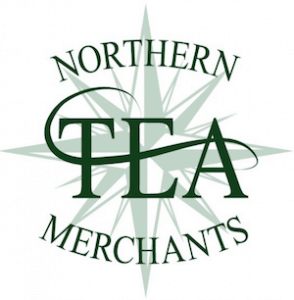
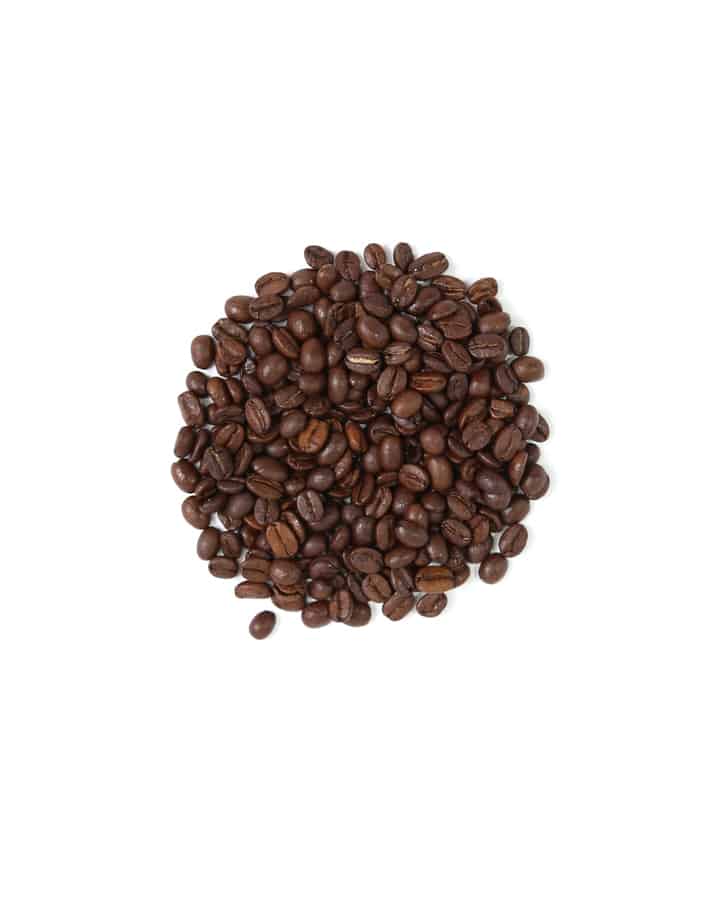
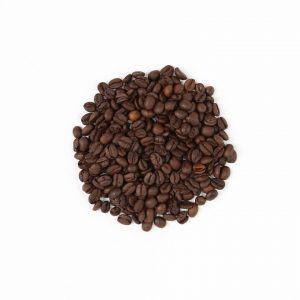
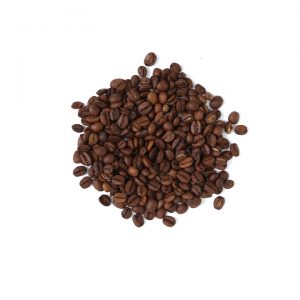
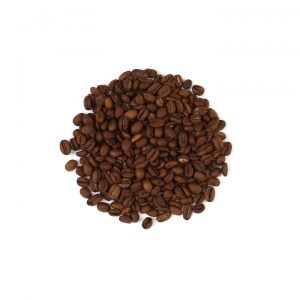
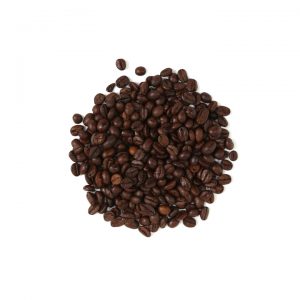
Reviews
There are no reviews yet.